How UN resolution commemorating 1995's Srebrenica massacre is igniting tensions
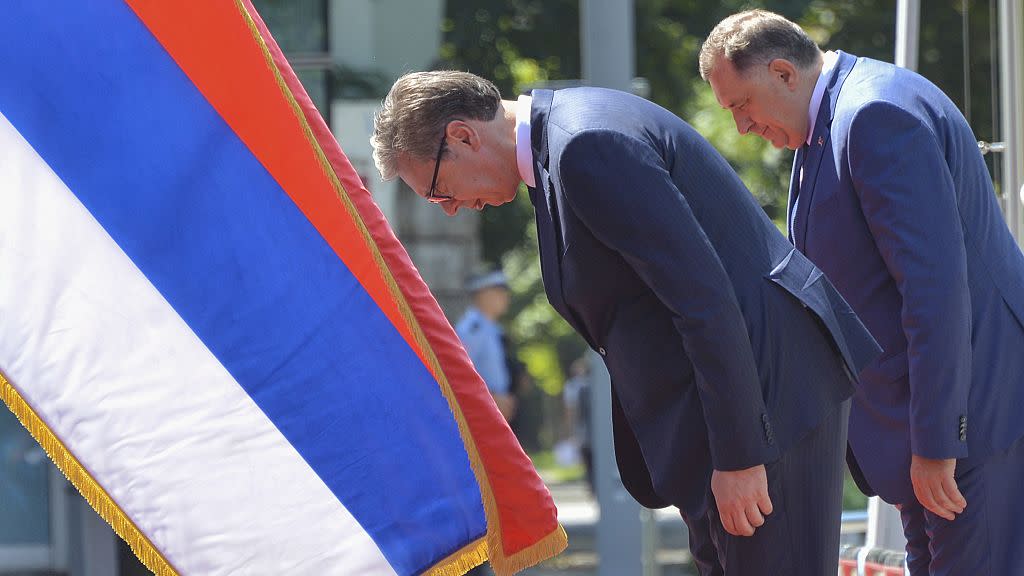
- Oops!Something went wrong.Please try again later.
- Oops!Something went wrong.Please try again later.
A draft UN resolution that declares July 11 "The International Day of Reflection and Remembrance of the 1995 Srebrenica Genocide" will be submitted to the UN Assembly for scrutiny on April 17 and is to be voted by the 193 member states of UN General Assembly on May 2.
Partially modelled on a similar resolution for the Rwandan Tutsi's genocide, the document is being developed by a group of countries including Rwanda, Germany, France, and the USA.
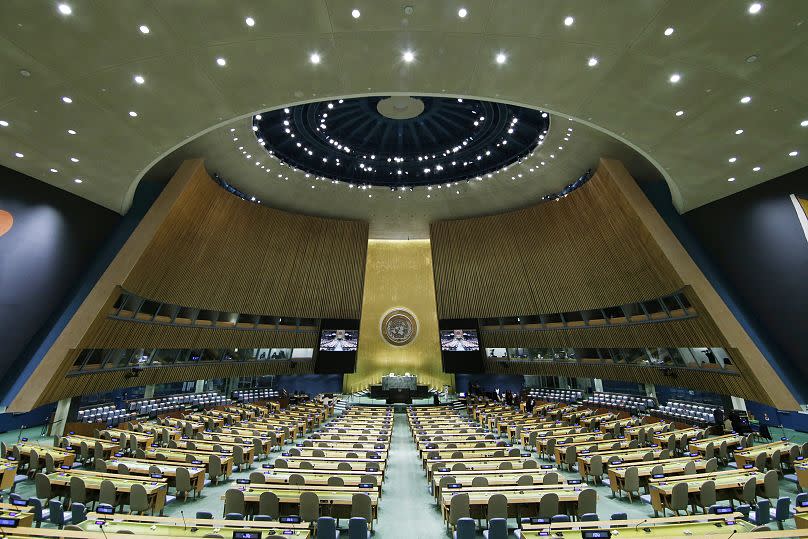
Although the full details of the proposed document are not available yet, it has provoked fierce Serbian reactions, both from the Bosnian Serbs of the Republika Srpska and the authorities in Belgrade.
The president of the Serbian entity of the Republic of Bosnia and Herzegovina, Milorad Dodik, said on a visit to Belgrade that "Bosnia and Herzegovina may not survive" the UN resolution.
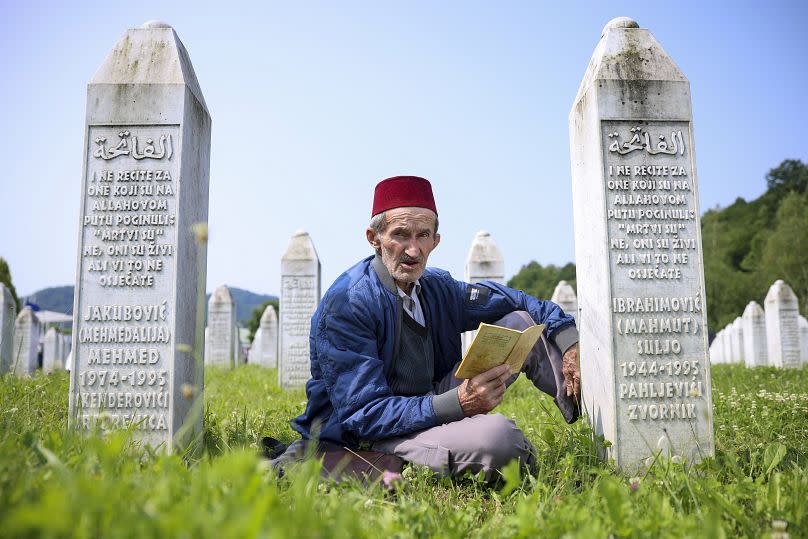
The nationalist-conservative Serbian President, Aleksandar Vučić, took issue with the procedure of approving the resolution, which is to be voted by the UN Assembly and not by the UN Security Council. According to President Vučić the Security Council is more politically appropriate when it comes to the Bosnian affairs:
"It is an obligation that the United Nations Security Council deal with the issue of Bosnia and Herzegovina because it is still an unstable region. I am saying this because they want to shift the vote from the Security Council to the United Nations General Assembly" said the Serbian president concluding that "the preservation of peace is not just a memory's culture issue".
Unlike resolutions that pass through the General Assembly, a Security Council resolution can be vetoed by just one member. Serbia often relies on Russia as a vetoing force.
A Serbian charm offensive in Paris
On April 8 and 9, the Serbian Head of State met his French counterpart, Emmanuel Macron at the Elysée, where he signed several contracts with the French arms industry.
Nevertheless, president Vučić didn't receive the support from Paris he expected on his position.
President Macron said "On July 11, 1995 and in the days that followed, one of the worst tragedies in modern history took place in Srebrenica, Bosnia and Herzegovina. France has not forgotten more than 8,000 victims, adults and children, who were killed. With deep emotions, I greet the surviving victims of the genocide and their families and express my sincere condolences"
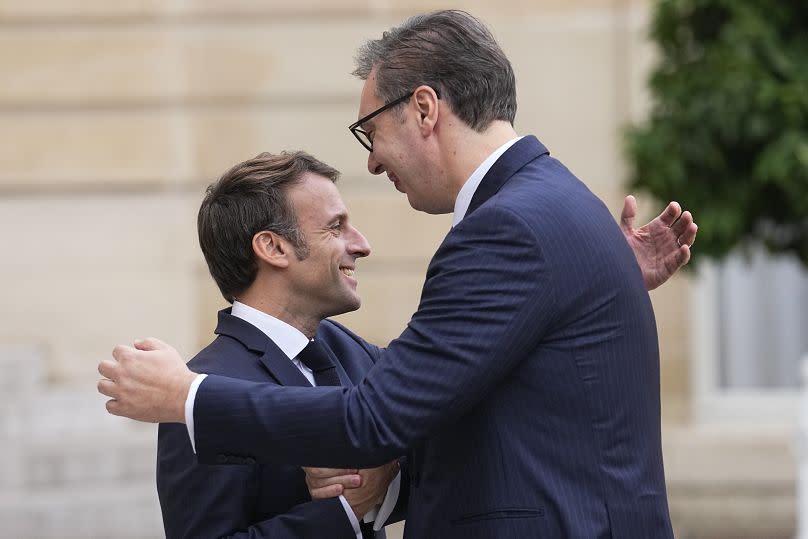
France is among the countries promoting the Resolution on the Srebrenica massacre.
According to the US state-owned news network Voice of America, the draft resolution condemns "any attempt to deny the genocide in Srebrenica and encourages any effort to bring the perpetrators of this massacre to the international courts".
Milorad Dodik's current rhetoric rejects the idea that in July 1995 the Bosnian Serbian troops, under the command of General Ratko Mladić (condemned by the ICTY Hague court as a war criminal) committed genocide in Srebrenica.
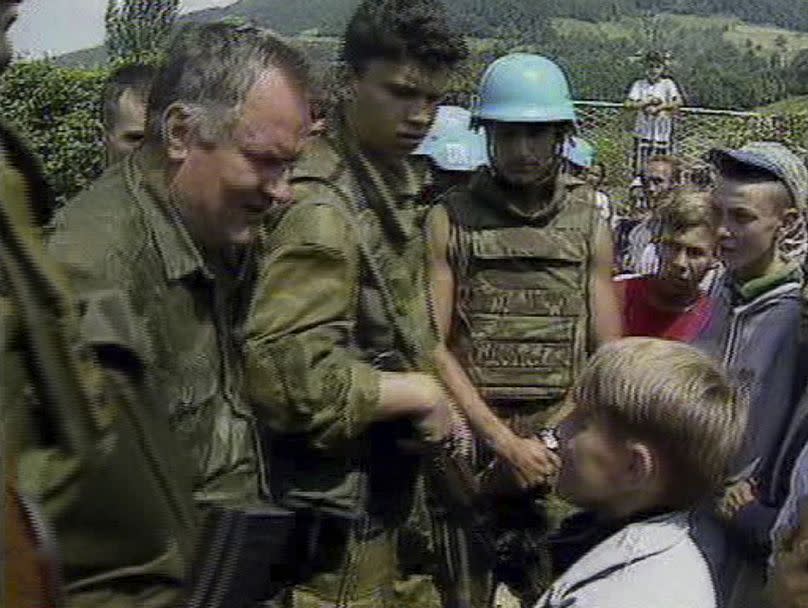
The impression of the international community is that Dodik is using the draft UN resolution as a pretext to carry out his separatist agenda.
In 2005 Dodik declared: "I know perfectly well what happened in Srebrenica. It was genocide. That was established by the court in The Hague. It is an indisputable legal fact".
The Head of the Republika Srpska, Dodik, threatened to announce officially unspecified "special measures" on May 5 if the UNGA will approve the Srebrenica Resolution.
It is not the first time that the "strongman" of Banja Luka has declared he does not agree with the Republika Srpksa being a part of the Republic of Bosnia-Herzegovina.
Belgrade's diplomatic embarrassment
The Serbian foreign minister, Ivica Dačić, said in response that "neither Serbia nor the Republika Srpska are mentioned here (in the resolution) but it says a crime against the Bosnian Muslims, so someone carried it out".
President Dodik has been in conflict with the Bosnian institutions and the High Representative of the International Community for more than two years.
He has opposed the electoral reform proposed by the High Representative, German diplomat Christian Schmidt, saying that Serbia doesn't recognize neither his authority nor that of the Constitutional Court of Sarajevo.
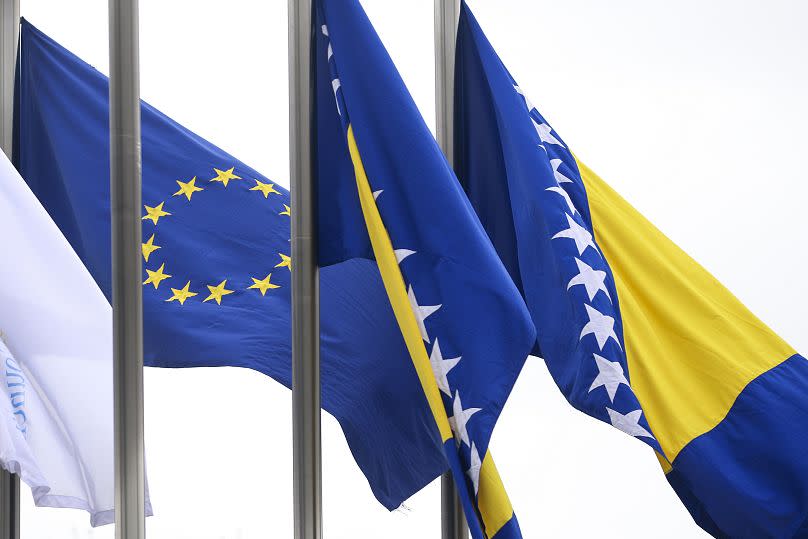
Serbia's President Aleksandar Vučić had no negative reaction to the words of Milorad Dodik, despite saying he officially supports the territorial integrity and the sovereignty of Bosnia-Herzegovina.
Christian Schmidt, the High Representative for Bosnia and Herzegovina, gave a warning in an interview to Euronews Serbia last week:
"Nobody should put the territorial integrity and sovereignty of Bosnia Herzegovina in question. By the way, President Vučić never does. He represents the signatory state of Dayton. This should never be put into question, this is the basis of a peaceful development there".
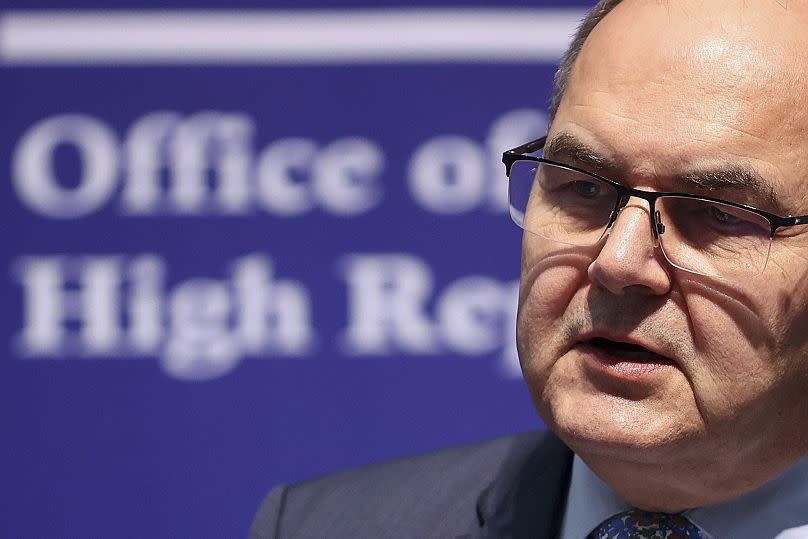
Apart from Belgrade, Dodik does not have many allies.
Recently he welcomed the nationalist-conservative Hungarian leader Viktor Orban, awarding him the highest order of the Republica Srpska.
He counts Moscow among his allies. Russian state media also buzzed about probable consequences of the resolution, calling it "a Western attempt to eliminate Serbs".
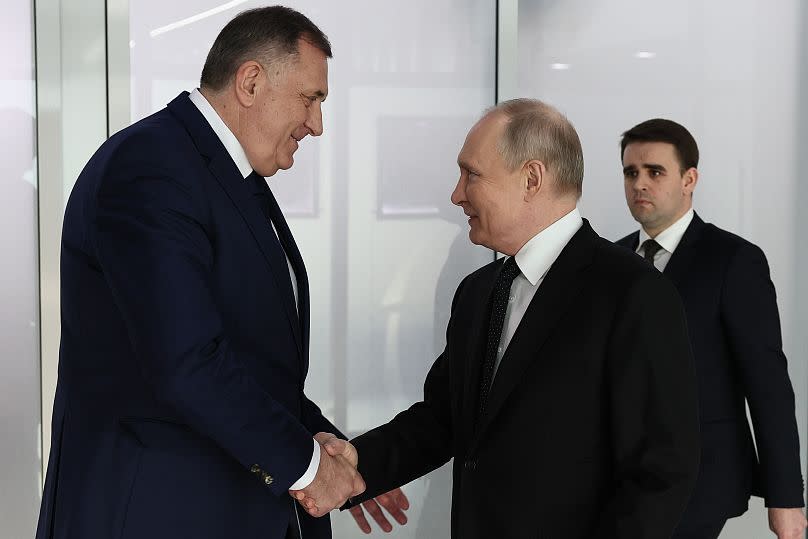
The EU and NATO have deep concerns that the Kremlin has been using the Serbian nationalism as an attempt to destabilise Europe.
Even after the invasion of Ukraine, Milorad Dodik has displayed friendly meetings and a robust political convergence with Russian President Putin, and the Russian Minister of Foreign Affairs, Lavrov.
Both Serbia and Bosnia are candidates to join the European Union. Serbia started negotiations with the block more than a decade ago. The relations between Serbia and the Union haven't been at their best for two years since President Vučić's administration did not support the sanctions imposed by Brussels on Russia.
The US' warning
The US embassy to Bosnia and Herzegovina reacted on Friday to the separatist approach of Milorad Dodik.
"Any attempt to secede from the entity or any other sub-state unit is an anti-Dayton action that will not be tolerated. The Constitution of Bosnia and Herzegovina does not give the entity or any other sub-state unit the right to secede," the embassy tweeted.

